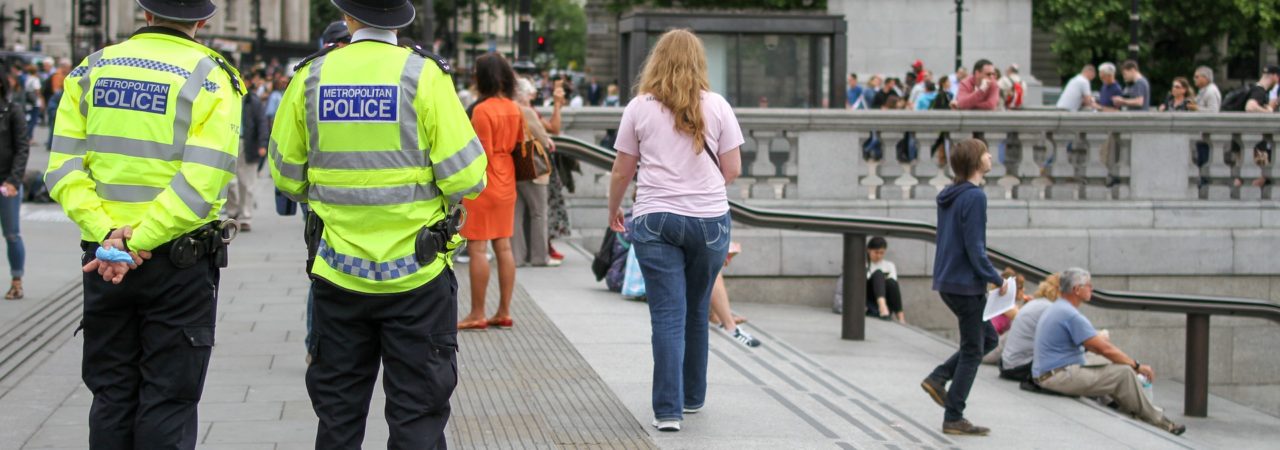Stop and search is a popular crime monitoring tool utilised by the Metropolitan Police. It’s viewed as one of the best ways to tackle crime and keep our streets safe. The police have the right to stop and search anyone, no matter how old they are. Should that person be quite young, there is no obligation to carry out the search in front of an appropriate adult. Vulnerable young people often complain that they are being targeted because of their age or race.
The feedback from the young people on the SW!TCH Lives programme is that they don’t know really know why searches are carried out or about the guidance that police officers follow when carrying out stop and searches. For instance, the police are required to adhere to the Children Act 2004 for every stop and search involving a young person. How do we know that?
LifeLine was offered the chance to participate in the Metropolitan Police’s stop and search training programme. We jumped at the chance as we thought this would be the perfect opportunity to help young people better understand why stop and searches are carried out and help the police understand the impact stop and search has on the community.
We hear from the young people who attended and the LifeLine SW!TCH Lives team.
Alex Nelson, SW!TCH Lives Youth Development Worker
I thought the stop and search workshop was brilliant. It wasn’t what I expected and it was good to see first-hand how the police deal with certain situations. It was also helpful to see the amount of thought process and legislations going through their heads at the time in order to keep themselves and the public safe.
It was an eye-opener even for me and certainly for the young people we had with us. They really enjoyed it and engaged with the session, asking lots of questions and were glad they came.
I think this should be an opportunity for all young people to help them to understand reasons why the police take certain actions, which should help both repair and further build relationships when working with the police.
Liam, Year 9 student at secondary school
- Before you attended the training, did you have the confidence to engage with police when a stop and search is carried out?
I didn’t feel confident enough to interact with the police by myself. I would rather have been stopped and searched if I was with my friend.
- Did you know the Stop and Search rules?
No, I didn’t know the rules, but now I know that if I ask for a stop and search slip, I will be given one and it will be recorded on their system.
- Did you know your rights and the recommended behaviours while being stopped and searched?
No, I didn’t. But now I would advise any young person that gets stopped and searched to remain calm and be cooperative. Especially if you’re innocent, it will make the process quicker and easier if you just do what they say and answer their questions.
Becca Clements, SW!TCH Lives Manager
- What was the impact of the workshop?
To educate the young people and improve their perception about the police following their negative experiences. And to give young people the opportunity to have a platform to share about their experiences and be heard regarding their views on their experiences.
- What did the young people get from it or understand better?
They got to understand the process’ of why the police take the choices they do. They learnt about the law and regulations which govern the Police to act the way they do to protect the public and themselves.
- How do you think we can improve relations between young people and the police?
- Invite more students in to watch the stop and search training process
- Record the stop and search process on body-worn cameras.
- Enforcement and rights to be part of the school curriculum
- Police officers regularly visiting schools and youth settings to build a rapport
- Encourage diversity in the Police by informing young people about how they can join the police force.
Feedback from young people
It’s all good! I enjoyed my time there; it was a new experience and, yeah, it really made me think differently about the police. Thanks for taking me!
I really enjoyed the workshop. It was definitely better than I thought it would be. Watching the police training was really interesting.
“It was so fascinating to watch the police training behind closed doors. They tried to make it as realistic as possible for the new recruits. There was one situation where the acting was aggressive and fighting, which was really fun to watch.
Stop and search—your rights and responsibilities
Here are the main rights that protect you:
- the officers searching you must use the stop and search powers fairly, responsibly and with respect for people without discriminating
- if English is not your first language, and you do not understand why you have been stopped, reasonable steps must be taken to provide you with information in your own language
- the officer must keep the search time to a minimum
- the search must take place near where you are stopped, except in instances where moving you would protect your privacy
- the officer does not have the power to detain you in order to find grounds for a search
How should you react?
Be patient
The police are aware that being searched is an inconvenience and that you’re probably in a hurry to get where you’re going. They should make the search as brief as possible. But in the interest of public safety they must also be thorough.
Be calm
- remember, you're not under arrest
- don't refuse to be stopped and/or searched
- the process is not voluntary – the law gives police the authority to stop and search
- officers do not need your permission to go through your belongings. If you refuse, you can be searched using reasonable force
- don’t be afraid to speak to the officer if you think your rights are being infringed



